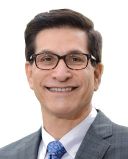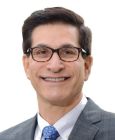ADHD
Are Smart Drugs a Smart Way to Get Ahead?
Teens and young adults are using prescription stimulants to boost concentration.
Posted June 3, 2013

School’s almost out and final exams are approaching. As the economy slowly builds steam, hiring trends are looking hopeful and pay raises and promotions are on the incline. And some people, young and old, are popping pills to ensure they don’t get left behind.
Among the most common brain-boosting pills are prescription stimulants used to treat attention deficit hyperactivity disorder (ADHD), such as Adderall and Ritalin, and the wakefulness-promoting medication modafinil (Provigil). Dubbed “smart drugs,” “study drugs,” “cognitive enhancers” and other terms that ring with positivity, these pills have sparked a heated debate about the ethics of using drugs to get ahead.
Any Means Necessary
On one side are proponents who argue working more and sleeping less is an acceptable – and in an increasingly competitive global marketplace, perhaps even necessary – goal, regardless of the means used to get there. They ask: What if these drugs could fast-track new discoveries and cures for diseases and make people safer drivers and more efficient workers?
We already use drugs for sexual enhancement (erectile dysfunction drugs), beauty enhancement (weight loss drugs) and mood enhancement (antidepressants). Why not cognitive enhancement? Are study drugs so different from caffeine, another drug commonly used to stay awake and work longer hours? Aren’t they doing less harm than, say, legal drugs like alcohol?
The Price of Cognitive Enhancement
For others, including many of us in the field of addiction and mental health treatment, the “cognitive enhancement” movement raises serious concerns. The Drug Enforcement Administration classifies Adderall, Ritalin and other stimulants as Schedule II controlled substances – the same category as cocaine and methamphetamine – because of their high potential for abuse and dependence.
Although we don’t fully understand the short- and long-term implications of using these drugs on healthy people, we know that the potential side effects range from anxiety, insomnia and depression to headaches, increased heart rate and psychosis. While these effects do not usually outweigh the benefits for individuals with ADHD and other health conditions, choosing to use them for competitive advantage is a high-risk, low-reward proposition.
Like cocaine and other drugs of abuse, many study drugs increase dopamine levels in the brain, which means they have potential for abuse and dependence. Over time, users can build a tolerance (needing to take higher doses as their brain adapts to the presence of the drug) and withdrawal symptoms, often described as a “crash,” if they stop taking the drug.
In addition to these risks, the benefits of study drugs are speculative. While some studies show modest benefits for certain types of cognitive challenges, particularly mundane tasks that don’t require high-level thinking or creativity, other reports show no improvement in grades or work performance.
Even if these drugs have positive effects on certain measures of memory or learning, they come at a cost. Take a drug as seemingly innocuous as caffeine. Studies show it can enhance problem-solving and logical reasoning, but it may have a negative impact on memory, information processing and overall cognitive function.
Right now, there are more questions than answers: Is the use of brain drugs different from athletes’ use of performance-enhancing drugs? Outside of cheating the system, aren’t users cheating themselves out of valuable lessons such as discipline, time-management, organization and planning? Do we want to live in a world where drug use is a necessity just to keep up or where parents line up pills alongside their children’s vitamins each morning?
When the Protectors Become the Enablers
Some of our concerns about study drugs seem to be playing out among one of our most vulnerable populations: our children. Under pressure to get into prestigious universities so they can land jobs in a floundering economy, a growing number of teens and young adults are using study drugs. Anywhere from 8 to 35 percent of college students admit to taking study drugs to enhance their performance at school.
Young people think these drugs are safer than illicit drugs and their parents are just as misinformed. Even though one in 10 teens misuse ADHD meds, according to the latest University of Michigan Mott Children's Hospital National Poll on Children's Health, only one in 100 parents believes their teen has used a study drug. In a recent study by The Partnership at Drugfree.org, almost one-third of parents said that Ritalin and Adderall can boost a child’s academic performance even if they don’t have ADHD.
A Simple Cost-Benefit Analysis
Based on the current evidence, cognitive enhancement is not the boon some believe it to be. From caffeine and cigarettes to saffron and speed, people have used substances to enhance their intellectual and creative abilities for hundreds of years. Still, no one has found the “it” drug that has the desired benefits without the negative side effects.
Like fad diets, get-rich-quick schemes and other quick fixes, cognitive enhancement may never be able to deliver the kind of results achieved by good old-fashioned self-care. Adequate sleep, regular exercise, a healthy diet, and activities that stimulate the mind and body may seem like antiquated concepts but they deliver results without the side effects, not to mention the satisfaction of winning the prize fair and square.
David Sack, M.D., is board certified in psychiatry, addiction psychiatry, and addiction medicine. As CEO of Elements Behavioral Health he oversees addiction treatment programs at Promises Treatment Centers, Malbu Vista, The Ranch outside Nashville, The Recovery Place rehab in Florida, and Texas drug rehabs The Right Step and Spirit Lodge. You can follow Dr. Sack on Twitter @drdavidsack.




